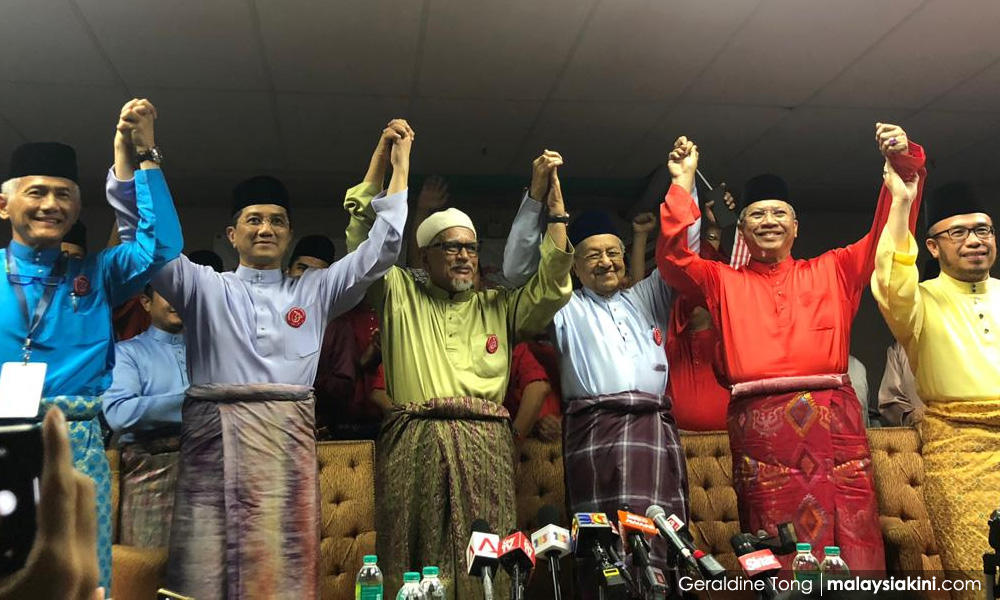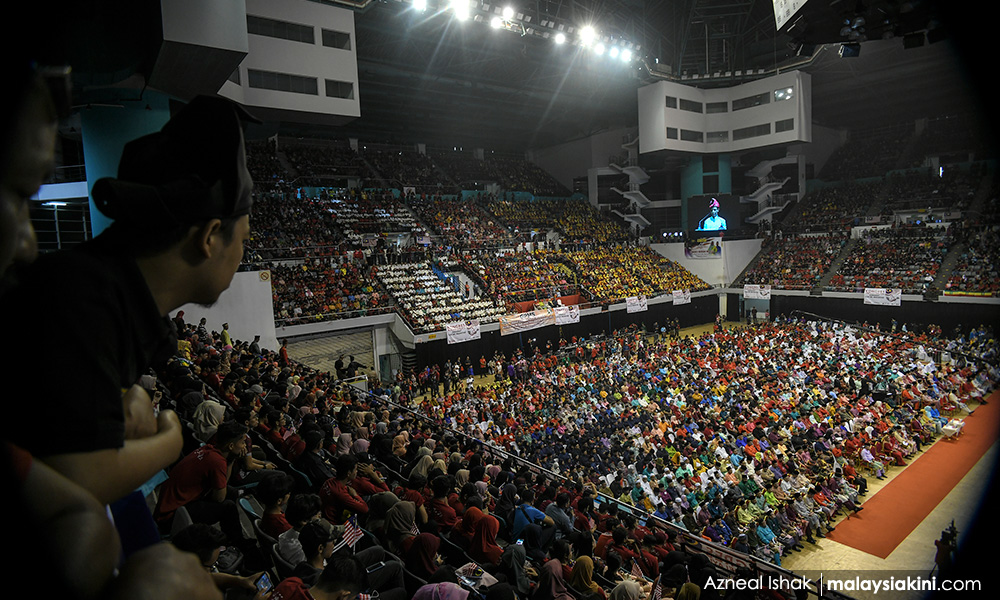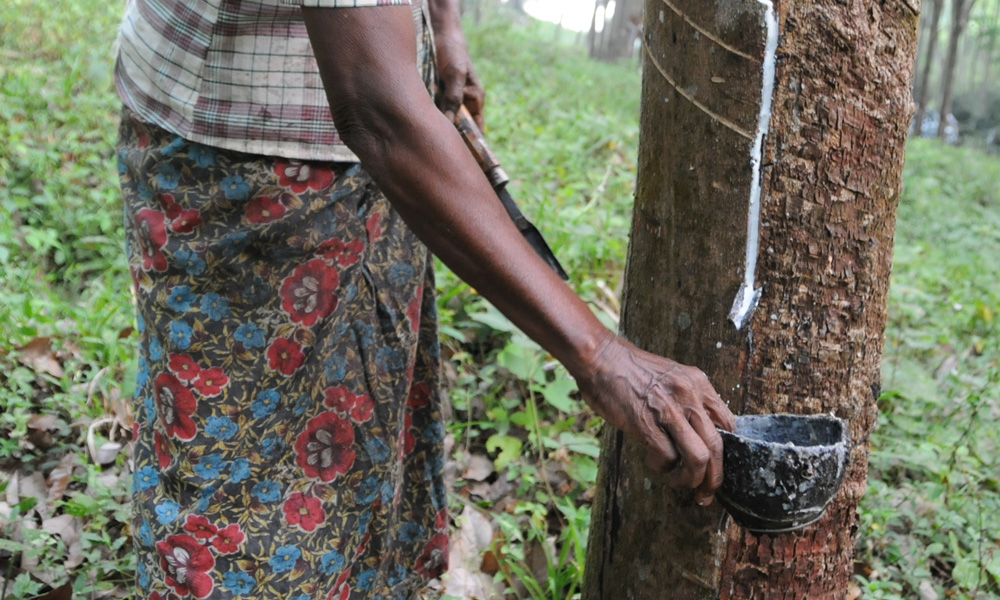The recent Malay Dignity Congress was quite telling.
For many Malaysians, it was shocking and sad to read about what was said at the Dignity Congress. There are so many things that were wrong with the previous government, but yet nothing was said about the abuse of power and about the loss of billions of ringgit by alleged acts of kleptocracy by past leaders.
Instead, the usual unfounded allegations of non-Malays abusing race and the religion were repeated.
Congress organiser Professor Zainal Kling declared this land as the land of the Malays as the justification for special rights of Malays and threatened the suspension of non-Malay citizenship rights for questioning or challenging those rights. PAS leader Abdul Hadi Awang called for the seizing back of power now ceded to the non-Malays.
There was a call for the reservation for Malays only of senior cabinet positions and senior government and judicial positions. There was a call for the gradual abolition of vernacular schools. There was a demand for scholarships to be returned to the Malays.
Prime Minister Dr Mahathir Mohamad lent credence to these utterances by his account of why citizenship had to be given to the non-Malays at the point of independence and how disunity among Malays had required Pakatan Harapan to be sensitive to the feelings of the non-Malays.

Many of the Malay ministers from Harapan attended the Malay Dignity Congress and said nothing about the incendiary statements made. Mahathir later said that he had not heard the statements made by Zainal Kling. He later rejected an invitation to join Umno and PAS to form a unity government, saying that Malaysia was a multiracial country and that non-Malays had been part of the government since independence.
This practice of saying one thing before an all-Malay audience and another thing before a non-Malay audience continues. An account by a Chinese journalist of her feelings as she listened to the speeches was quite disturbing and sad. She said that she felt awkward.
A close associate of Mahathir said that the speech was not intended for the non-Malays. And that it was essential for Mahathir to win over substantial Malay support to stabilise Harapan. Perhaps. But why not simply do and say the right things? Why are fairness, justice, compassion, equality and inclusiveness not good enough operating values for a government?
University dons should have been neutral of such politics. But they were not.
How long will this go on? How long will the rights of Malaysians who are not Malays be ignored? Will threats continue to be employed to suppress and subjugate the non-Malays?
Is there no adherence to the rule of law? The rule of law first presupposes the existence only of good laws. And good laws mean laws that do not offend the Constitution. And the rule of law means that the rights of all citizens, whatever their race or religion, must be upheld and given meaning. All citizens are equal before the law, and discrimination is unlawful. There is only one class of citizenship in the country.
Non-Malays have a right to expect their leaders, the police, the judges, civil servants. university professors and politicians, to respect their rights.

How long will some of our leaders continue to blame the non-Malays for the condition of the poor Malays? We have been independent for more than 60 years and the Malays have always dominated the government.
Billions of ringgit have been spent to uplift the Malays. Exclusive schools and educational institutions have been set up for the Malays. The civil service and armed forces are more than 80 percent Malay. All kinds of schemes, projects and foundations like Felda, Risda, Felcra, Mara, PNB, Amanah Saham and Tabung Haji have been set up for the Malays.
And yet there appears to be so much resentment against the non-Malays. Why should that be so? Yes, there are many poor Malay households. But there are also poor non-Malay households. Whilst there have been substantial gains under the New Economic Policy (NEP), there are still many Malay households that are poor.
There is a need to look at wealth distribution within communities and to also review approaches to poverty upliftment. We know now that for many years we officially acknowledged that only 0.4 percent of our population to be poor. But we are now told that it could be as high as 15 percent.
We also know that standards of education are a big factor to explain high graduate unemployment and low wages. The presence of foreign workers in the country also depresses wages for locals and removes any incentive for Malaysian employers to raise wages for Malaysian workers.

The Chinese are an extremely hardworking and entrepreneurial community. They place great emphasis on education and skills training. They save their money, invest well and sacrifice much for the education of their children. They pay taxes, contributing substantially to the government coffers.
The relative success of the Chinese cannot be a cause for resentment and Chinese bashing. Their energy and enterprise should be harnessed for the benefit of the nation. The exclusion of Indians from estates and from government service has resulted in the marginalisation of the B40 Indians. Once described as a docile community, now many join gangs and take to violent crimes. And the indigenous people of Sabah and Sarawak have become the poorest of the poor.
The non-Malays would not object to anything done to help the poor and the disadvantaged. The non-Malays have a stake in Malays succeeding. The government should be more focused in its approach. Target the poor. Use the talents of all our people, whatever their race, to advance all our people. A non-racial approach to poverty eradication will bring all our people together. Multiracial commercial ventures would result in a transfer of skills and experience.
Our universities should represent the best aspects of our people and of our nation. Instead, some chose to hold and participate in the Malay Dignity Congress, blissfully unaware of what a spectacle they made of themselves. They were anything but dignified.
DAVID DASS is a lawyer.
The views expressed here are those of the author/contributor and do not necessarily represent the views of Malaysiakini.

No comments:
Post a Comment